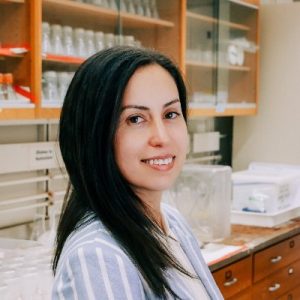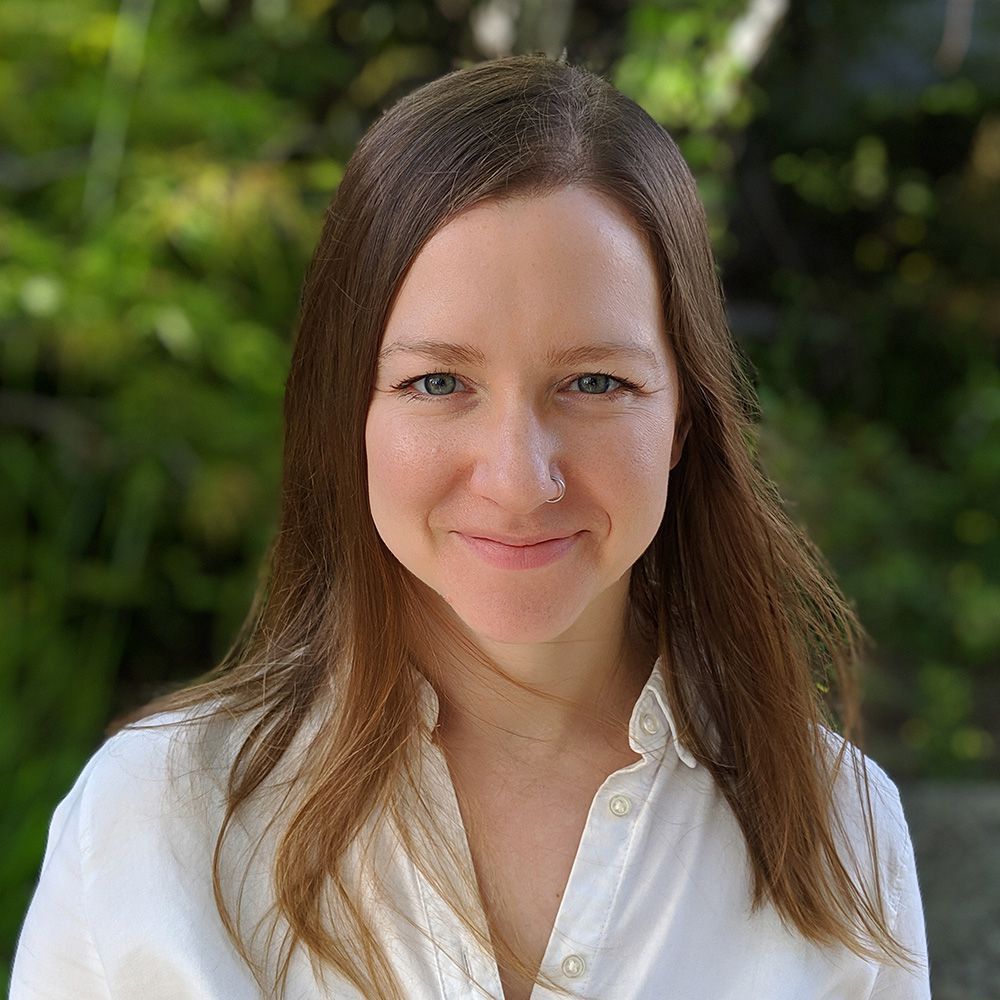
From Community College to Cal: IGI Fellow Veronika Kivenson Shares Her Story
Veronika Kivenson is a 2022 Tory Burch Fellow at the IGI. She studies microbial genomes and is developing microbe-inspired therapeutics. Learn more about her research here.
Like some of our UC Berkeley students, you attended community college. How did that shape your path into science?
I loved my time at Bunker Hill Community College! And I really appreciate that the UCs have a strong transfer pipeline.

My genetics professor at Bunker Hill pointed me towards an REU funding opportunity that didn’t require any experience. I was working at Dunkin’ Donuts at the time, doing 5 AM opening shifts, living with my brother and commuting an hour or so to school. So I didn’t want to go to the open house, I just didn’t have time! But my professors really encouraged me to attend and apply… And I ended up getting an internship in a lab at Harvard. After the REU, they hired me for an additional year and after that, all these doors kept opening. But I never really left community college all the way. I still work with community college students, edit their internship and transfer applications, share my old documents, and give talks.
After a couple years at community college, you transferred to Mount Holyoke College. Why did you choose Mount Holyoke?
A lot of places don’t have transfer programs. It can be difficult to transfer credits, regardless of how comparable the classes are, and difficult to map out a coursework plan because of these ambiguities. Some people from Mount Holyoke visited Bunker Hill and gave talks about their transfer program. After, an alum contacted me and asked, “Do you want to visit?” But it was an hour and half drive and I didn’t have a good way to get there. She made an excuse about needing to make the drive for other reasons and took me to campus. The people were so engaged and they felt so passionately about the school.
The approach must be “fixing bias, not women.”
I love Bunker Hill, but it’s also a commuter school, and almost everyone is working to support themselves, so it doesn’t have the same feel as a residential school. And so I was like, Wow, if you have a good conversation in class, you can just go to lunch on campus and continue it. It sounded like an adventure and I wanted to try it out. For over a decade now, I’ve stayed friends with the people I met there, students and professors.
Was it a tough transition?
Mount Holyoke had a team to help you understand the transfer process. They offer tuition-free enrollment and really strong financial aid for non-traditional students, like transfers, veterans, parents, or older students, who enroll as Frances Perkins Scholars (FPs for short). This program is named after Frances Perkins, class of 1902, who was the first female Cabinet member in US history. Many FPs, including myself, lived in one big house on campus and it provided a sense of community and belonging. People throw those words around, but I mean that in the most authentic possible way. My experience as an FP changed my life in the most unexpected and meaningful ways.
Mount Holyoke is a women’s college. Do you think that influenced your trajectory?
In some classes in high school or community college, the guys would take over the conversation and you’d have to verbally wrestle them back to be able to talk. Having to do that all the time is a drain on your mental energy. And it can be even worse in STEM classes. I have too many stories to recount about first hand experiences that women close to me have experienced; these issues are so commonplace. Mount Holyoke was totally different, and I took it for granted a little bit at the time. But it shaped me and made me more aware of gender issues broadly.
I went to a girls’ high school and when I went to college, I noticed that girls from my school would sit in the front row and ask questions – we had healthy sense of entitlement in science classes, like, “Yes, I belong here!” Do you think your time at Mount Holyoke influenced your confidence level?
Yes, absolutely. It’s such a subtle process – maybe less a confidence increase than just not being exposed to the negative messages that you might get in another environment.
I can’t stop talking about an article I saw in Harvard Business Review, “Stop Telling Women They Have Imposter Syndrome.” It blew my mind because the punchline of that article is that talking about women who have “imposter syndrome” frames the issue as a personal shortcoming, something that you have overcome as an individual. Their argument is that it’s a societal problem and that “feeling like an imposter” is just a natural response to pervasive social cues that we don’t belong or aren’t valued in male-dominated or even sometimes in mixed-gender environments. In other words, society has the problem and needs to change – as the author succinctly writes, the approach must be, “fixing bias, not women.” Of course, this wasn’t the case at Mount Holyoke because it’s a women’s college. So that internal messaging that makes you feel like an imposter isn’t there. In fact, you very much belong there by design.
I got so lucky with my community college and Mount Holyoke. I feel like that was the most wonderful experience – I got the best of everything with those. It really shaped who I became and prepared me for the next big steps.
Veronika on her experience as an IGI Entrepreneurial Fellow:
You may also be interested in

IGI Seminar Series: Worldwide Competitions and the RNA Folding Problem

IGI Seminar Series: Progress and Challenges in Delivering Cassava with RNAi-mediated Resistance to Cassava Brown Streak Disease to Smallholder Farmers in Africa – It’s Not Just About the Technology

IGI Seminar Series: Empowering Teachers, Transforming Classrooms: Advancing K-12 STEM Education

 By
Hope Henderson
By
Hope Henderson